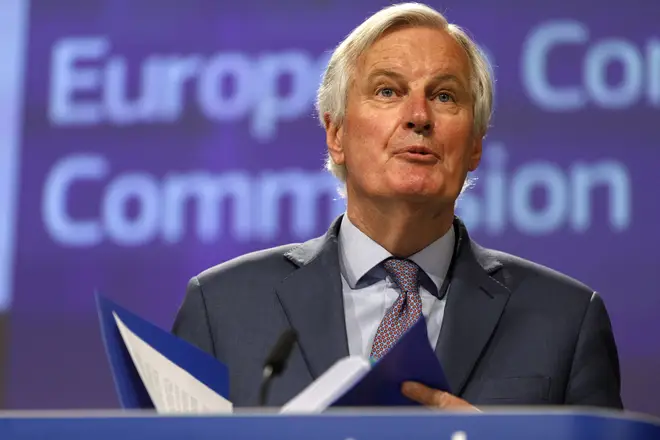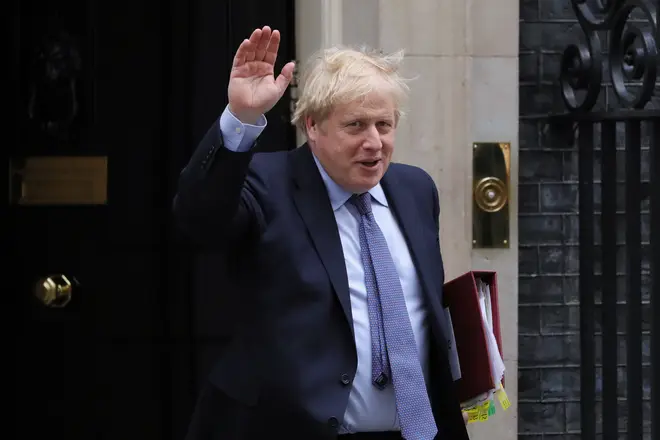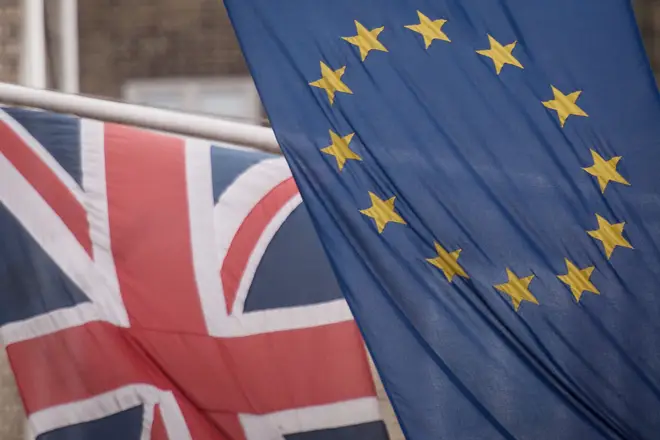
Paul Brand 3pm - 6pm
24 April 2020, 18:31

Progress needed in post-Brexit EU trade talks - Michel Barnier
The EU's chief Brexit negotiator has expressed his disappointment over the progress of the talks.
Michel Barnier said on Friday that a decision is needed by the end of June on whether to extend the transition period beyond the end of this year.
He also accused the British delegation of not engaging with the process on the terms previously set out in the withdrawal agreement.
The UK is refusing to commit "seriously" on numerous fundamental points, the EU's chief negotiator said.
Michel Barnier warned the "clock was ticking" and said Britain cannot both slow down trade talks on key areas while refusing to agree to extend the transition period.
His remarks on Friday afternoon came at the end of the second round of talks, which took place by video-conferencing technology because of the coronavirus pandemic.

The UK Government also acknowledged only "limited progress" was made in "bridging the gaps" with the EU.
Despite warnings an agreement may not be possible by the end of the year when the transition ends, Boris Johnson has insisted he would not agree to an extension.
Mr Barnier said there are four areas in particular where the "progress this week was disappointing", including the level playing field, fisheries and the role of the European Court of Justice.
He said tangible progress had only been "very partially met", adding: "The UK did not wish to commit seriously on a number of fundamental points."
Those were agreed by the Prime Minister and his team in the political declaration developed by both sides, which he said must be implemented in a "serious, objective, legal way".
"This is not the case now yet in a number of areas. I regret that and it worries me," he added.
"We need to find solutions on the most difficult topics. The UK cannot refuse to extend transition and at the same time slow down discussions on important areas."

Under the Withdrawal Agreement struck with Brussels, the transition period in which the UK continues to follow Brussels' rules runs until the end of the year.
It can be extended if more time is needed to secure a comprehensive trade deal if a request is agreed by both sides, but that must be lodged by the end of June.
Mr Barnier criticised the UK team, led by his counterpart David Frost, for having "failed to engage substantially" on the subject of the level playing field.
Overall governance of a future partnership is another area where both sides are "very far apart", he said.
The EU wants a single framework to jointly manage the future relationship but the UK "continues to insist on a number of separate agreements", he said.
Britain also refused to "provide firm guarantees rather than vague principles on fundamental rights and individual freedoms" creating "serious, serious" limitations for a security partnership, while the UK must recognise a role for the European Court of Justice.
And "no progress" has been made on fisheries as the UK has "not put forward a legal text", Mr Barnier said.

Listen & subscribe: Global Player | Apple Podcasts | Google Podcasts | Spotify
Senior figures in Brussels and opposition parties in the UK have warned the coronavirus pandemic means it will be impossible to reach an agreement in time and will lead to a chaotic exit at the end of the year.
Mr Johnson has repeatedly insisted this will not happen. His official spokesman has even said the UK needs to be free of EU rules to allow it "flexibility" to respond to the coronavirus crisis.
Two more week-long rounds of negotiations between the sides are scheduled, starting on May 11 and June 1.
A UK Government spokeswoman said that despite "some promising convergence in the core areas" of a free trade agreement the detail of the EU's offer on goods "falls well short" of recent precedents set by the bloc with other countries.
Other "significant differences of principle" include the level-playing field, which aims to set common rules and standards to prevent businesses on one side undercutting the other.
She said progress on that area cannot be made until "the EU drops its insistence on imposing conditions on the UK which are not found in the EU's other trade agreements and which do not take account of the fact that we have left the EU as an independent state".
On fisheries, she said there would be no progress until Brussels accepts "the UK will have the right to control access to its waters at the end of this year".